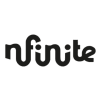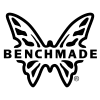Target's private label roots go way back. In 1995, it introduced Archer Farms to its merchandising mix — its first-ever owned food brand.
Its initial offerings were the type of unfabulous essentials consumers would purchase on an average grocery trip: bread, milk, pasta and bottled water. But over the years, Target's assortment of owned brands, also known as private labels, steadily inched into various categories with the launch of brands like Room Essentials in the home space, Cat & Jack in kids apparel and Heyday in electronics.
The outcome of Target's private label blitz was nothing short of astonishing. Target now boasts 48 private brands on its roster — 10 of which are worth a billion dollars, a Target spokesperson confirmed to Retail Dive. During the first quarter of 2021, Target nabbed $1 billion in market share, and its private label brands rose 36%, the strongest growth the retailer has recorded.
To do so, Target effectively changed the plain, cheap and low-quality perception that store-owned brands have had for many years, according to experts interviewed by Retail Dive. In a quest for profits, some of the biggest retailers — including Walmart, Macy's and Bed, Bath & Beyond — are out to do the same.
Retailers have partnered with celebrities or other name brands to launch private labels. Some focused on improving the packaging and others focused on improving the products' quality. Some have done everything all at once.
Walmart, for instance, tapped fashion designer Brandon Maxwell as creative director of some of its owned brands, Free Assembly and Scoop. Bed Bath & Beyond launched Our Table in June, among a slew of other owned brands, in a bid to offer versatile and durable kitchen and dining wares. As part of its turnaround strategy, Macy's announced early last year that it is giving some of its private labels a makeover to appeal to millennials.
But experts claim that having the same strategy doesn't always reap the same results.
"Target has earned this reputation over decades in the business with their store brands," said Bob Hoyler, consultant at Euromonitor. "I don't think [retailers] can automatically bank on this being a success."
Reinventing the stigma around store brands
Target has nearly 2,000 store locations across the U.S. — and that's precisely why consumers are drawn to its private labels. They're easily accessible to look at, touch and assess in person, Hoyler said.
"Target really has that built-in exploration that a lot of retailers don't in the U.S.," Hoyler said. For instance, some consumers might go to Target with a few items in mind to buy, but they also have the option to browse and see what's available in other categories, he said.
Retail specialists and online retailers don't quite have that advantage, Hoyler said. In some of these stores, consumers tend to shop only for what they need.
But it's not just the ease of access and discoverability that drives consumers to Target's private labels.
Target has what many call a "cheap chic" image. It was from that impression that some consumers began calling the retailer "Tar-zhay," a presumed French pronunciation of the retailer's name to suggest it is high quality.
"They were known for being cheap chic and a lot of that is as much about private labels as anything."

Sucharita Kodali
Retail Analyst at Forrester
The company has leveraged this image to launch a private label in nearly every trending category. In 2018 alone, Retail Dive tracked eight owned brands that Target launched that year: Target took a stab at minimal modern aesthetic by launching home essentials brand Made By Design, and with apparel brand Wild Fable, the retailer hoped to earn the attention of Gen Z. In the personal care and essentials space, Target rolled out Smartly.
"Historically in grocery, you would have private labels which were cheaper knockoffs. It would be subpar quality products that were just at a lower price point, and I think that brands have discovered that you can differentiate yourself" when you create higher quality products, said Sucharita Kodali, retail analyst at Forrester. "If you can charge a fair price for it, it's actually very attractive."
With that in mind, Target debuted a slew of private label brands in 2017 — A New Day, Goodfellow & Co., JoyLab and Project 62 — specifically to tap into its Tar-zhay image. Mark Tritton, who at that time was Target's chief merchandising officer, said building these brands not only meant evaluating what consumers demand now but also what they would want in the years to come. Tritton oversaw the release of over 30 private labels at Target in two and a half years.
"They're pretty well known for quality and they had a lot of unique things like diffusion lines and celebrity tie-ins," Kodali said. "They were known for being cheap chic and a lot of that is as much about private labels as anything."
Same strategy, different stores
Now as Bed Bath & Beyond CEO, Tritton is applying a similar private label strategy as part of the company's three-year turnaround plan.
Bed Bath & Beyond in March mapped out plans to introduce at least eight private labels in different categories this year. The company is on its seventh private label launch with Studio 3B, a contemporary home decor brand influenced by modern design. Other private label brands unveiled this year include home brand Wild Sage and organization brand Squared Away.
The company expects sales penetration from owned brands to rise to 30% within three years, up from just 10% at the time of the announcement.
Experts interviewed by Retail Dive agree that launching private labels can be a profitable growth engine for retailers aiming to improve their financial performance. Macy's is betting on this idea with four of its private label brands "well on their way" to becoming worth $1 billion each last year. One of the retailer's goals is to leverage the four brands — INC International Concepts, Alfani, Style & Co and Charter Club women's apparel — for 25% of sales by 2025.
"Private labels are an incredibly effective technique to drive incremental revenue for the retailer and also allow them to create products that are a bit more tailored perhaps to their customer base."

Hilding Anderson
Head of Retail Strategy at Publicis Sapient
But there are some risks associated with launching a new brand. Apart from the potential waste of capital and investment in product design, retailers may face pressure from their brand partners if they release a product that directly competes with them, experts said.
Additionally, if a product from a traditional merchant doesn't sell well, retailers could potentially arrange a return of some of the merchandise. That wouldn't be the case for private labels because retailers are "on the hook for it," Kodali said.
"But the flip side is that usually, you don't embark on a private label unless you're pretty sure that there's a market for that merchandise," she said. "You have to mark it down and it could be potentially a liability if it doesn't sell."
Unlike retail generalists, specialty stores also don't quite have the same access to the data that would allow them to anticipate future trends, experts said.
But even a big-box retailer like Walmart has had difficulties in elevating some of its fashion brands, despite efforts through partnerships, acquisitions, expansions and revitalization. The retailer in 2018 bought Eloquii and in 2017 Moosejaw Bonobos and ModCloth (which it sold in 2019). Some shoppers, at that time, worried that being associated with Walmart would bring down the quality of some of these brands.
In Bed Bath & Beyond's case, private labels may be a silver lining, but they haven't completely shielded the company from other difficulties. In its most recent quarter, foot traffic declines sent net sales down 26%. The retailer reported a net loss of $73 million from a profit of $218 million last year.
The case for going on a private label blitz
Despite falling short in the last quarter, Bed Bath & Beyond's private label strategy already seems to be showing results. The retailer said it has surpassed its private label penetration goal for the fiscal year. Those brands had even shown better results in Bed Bath & Beyond's remodeled stores.
"Private labels are an incredibly effective technique to drive incremental revenue for the retailer and also allow them to create products that are a bit more tailored perhaps to their customer base," said Hilding Anderson, head of retail strategy at Publicis Sapient. He added that being a retailer is about "developing customers and bringing great products to those customers, and private labels give retailers the ability to reach their customers more effectively."
The pandemic did not leave private labels untouched. The financial uncertainty of the pandemic gave rise to a new set of budget-conscious consumers, Hilding Anderson said.
"When you have the degree of change that we have as well as the economic uncertainty associated with COVID, I think you kind of have a double effect here. On the one hand, people are creating new routines," he said. "They also often have some real concerns and fears and so are more price-focused, and a private label is a good solution for that."
The percentage of new budget-conscious shoppers doubled between September and December 2020, data from NielsenIQ indicates. Private label sales rose 11.6% to $158.8 billion across major retail channels in 2020, according to recent data from NielsenIQ and the Private Label Manufacturers Association.
Private label growth is historically linked to inflation, said Keith Anderson, senior vice president of strategy at Profitero. When prices go up rapidly, it exceeds the pace of wages — making store brands an appealing alternative to price-conscious consumers, he said. This may give retailers the opportunity to ride a wave of demand.
"[Private label] is certainly going to continue to be attractive to retailers who are looking for margin enhancements in a volatile economic and consumer balance sheet environment," he said. So far, though, consumers have been keeping up with rising prices rather than falling back on cheaper private brands.
In some ways, consumers still care about purchasing name brands over private labels, said Keith Anderson. But shoppers are more willing to try new products and the overall emphasis on name brands has decreased.
"Is it the most important thing when making a choice? There's no question the importance has gone down," he said about consumers choosing between name brands over store brands. "You don't necessarily need to recognize the brand from a Superbowl TV campaign or billboards all around town."























